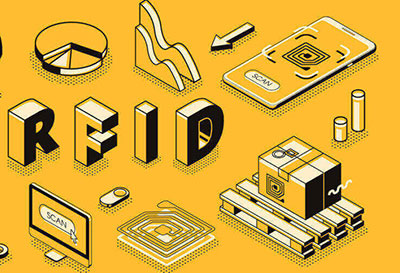Radio Frequency Identification (RFID) is a technology used to track and identify objects using radio waves.
RFID tags are used in a variety of applications, from inventory management to tracking livestock. However, one controversial use of RFID technology is tracking people.
One example of tracking people using RFID is in the workplace. Employers may issue RFID badges to their employees to track their whereabouts, monitor their productivity, and ensure that they are adhering to company policies. For example, a warehouse might use RFID to track the movement of goods and the location of employees to optimize operations. Similarly, a hospital might use RFID to track the location of medical equipment and personnel to ensure efficient patient care.

While RFID tracking can be a useful tool for businesses, it raises concerns about privacy and autonomy. Employees may feel uncomfortable knowing that their every move is being monitored, and the data collected by RFID can be used to make decisions that affect their job security and promotions. There is also the risk that the data collected could be used for discriminatory purposes, such as identifying which employees take more breaks or have different work patterns.
Another concern is the potential for
RFID tracking to be used in other settings, such as schools or public spaces, where individuals may not have consented to being tracked. This raises questions about whether individuals have the right to privacy in public spaces and whether the benefits of tracking individuals outweigh the potential harms.
However, while RFID technology has many useful applications, including tracking people, it raises important ethical concerns about privacy and autonomy. As the use of RFID becomes more widespread, it's essential that we carefully consider the implications of this technology and ensure that it is being used in a way that respects individuals' rights and freedoms.
Prev News:What is RFID for location tracking people?
Next News:Why RFID is used in car?
